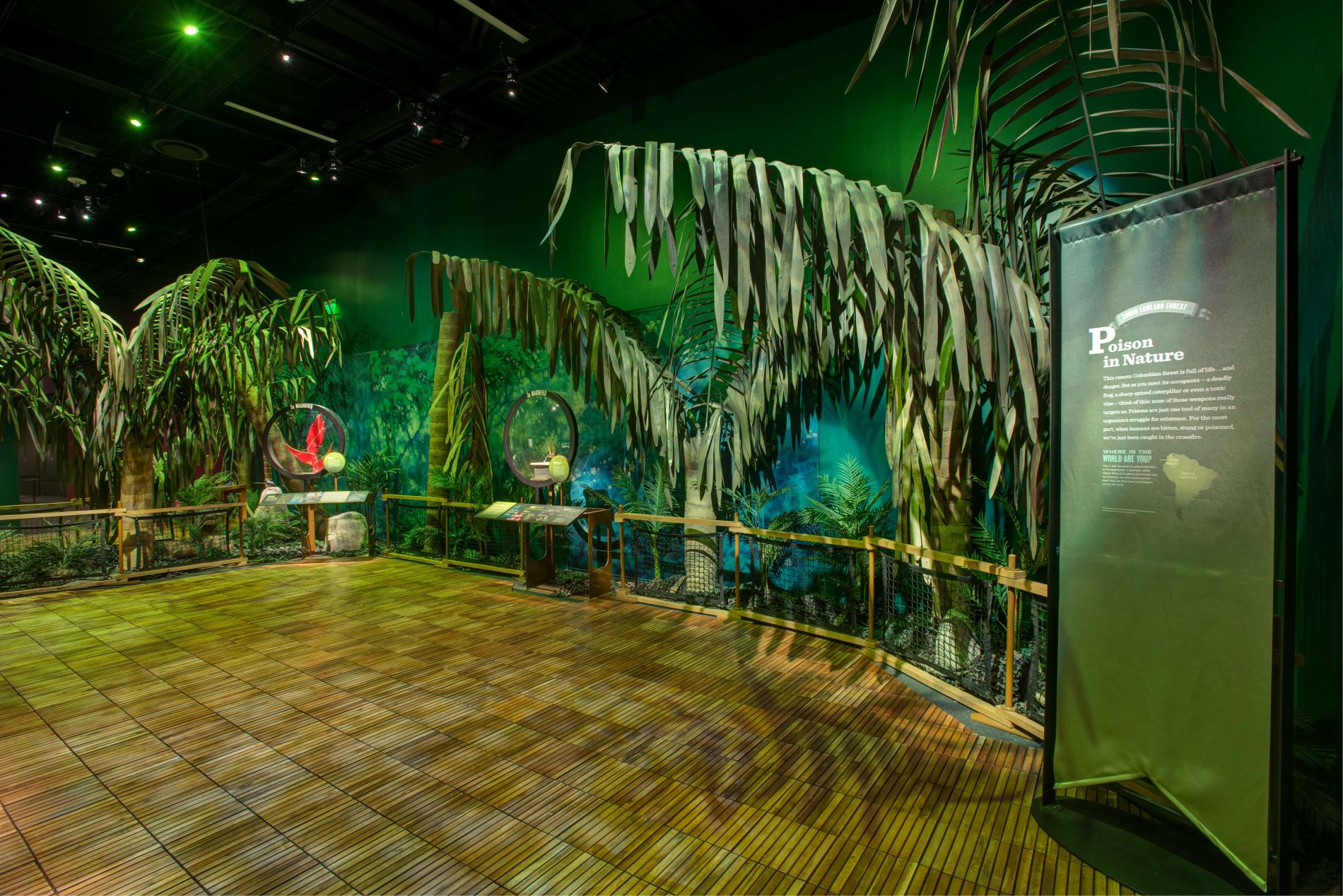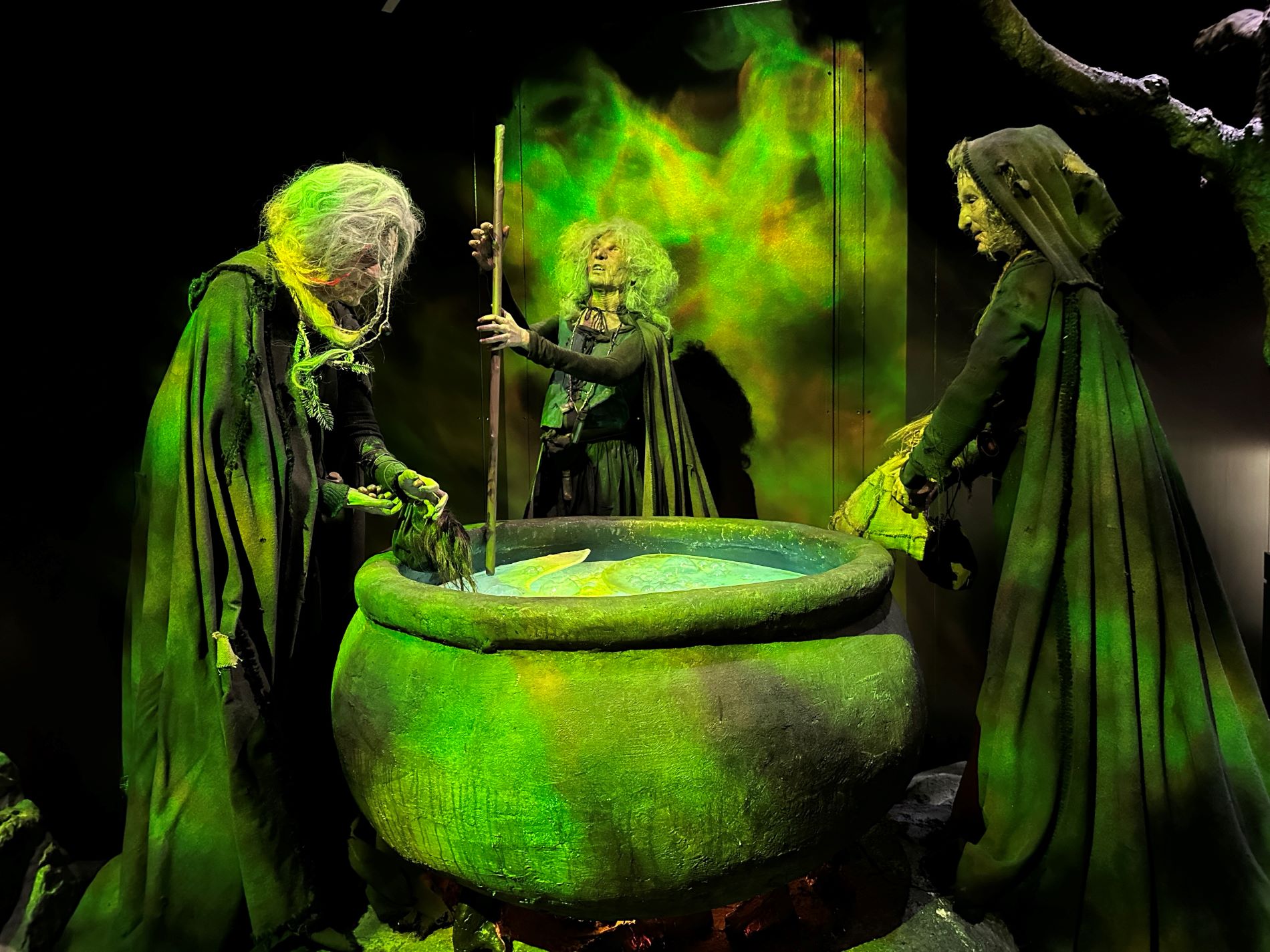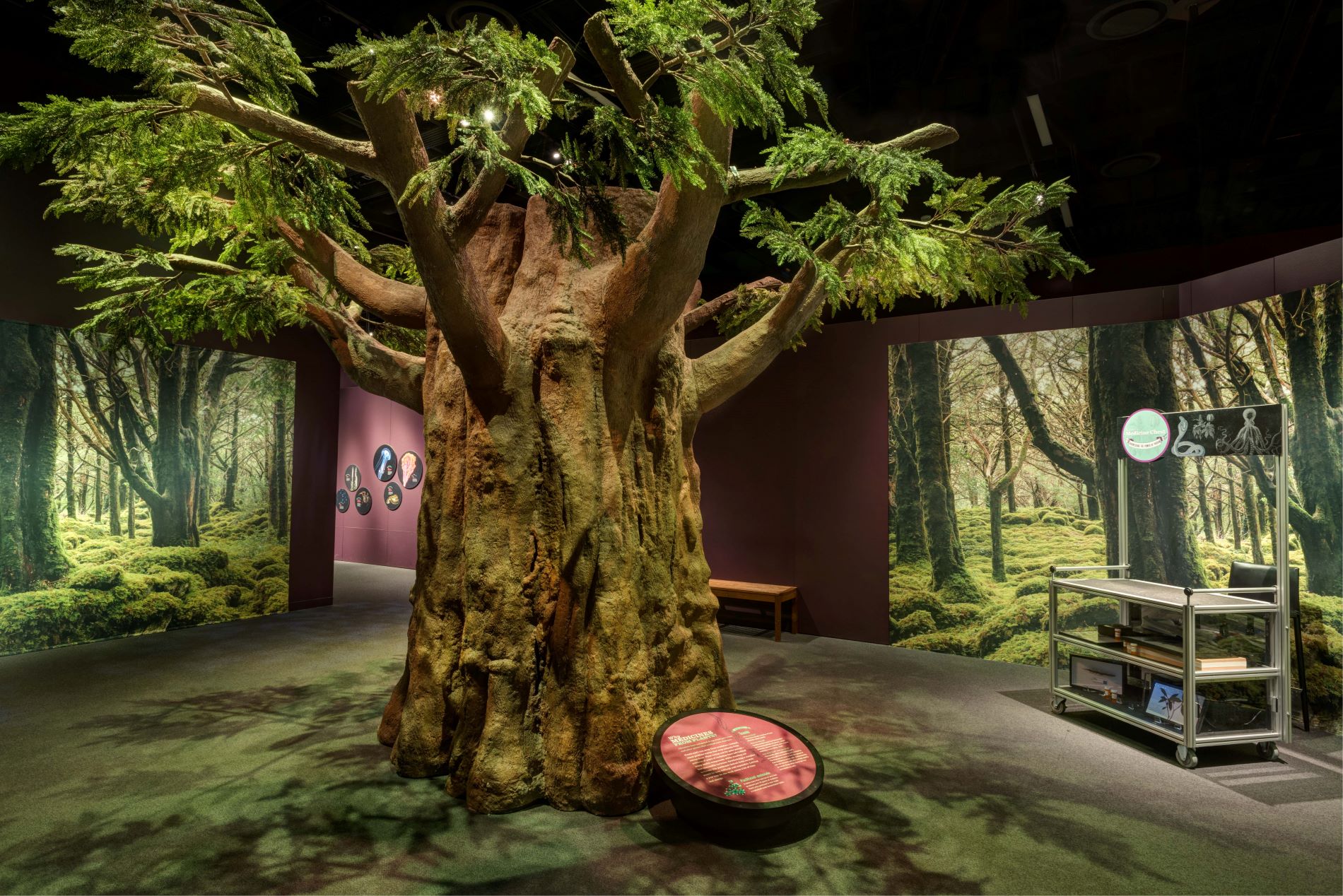
The Denver Museum of Nature & Science's latest temporary exhibition, "The Power of Poison," promises to take visitors on a spellbinding journey into the paradoxical world of nature's toxic arsenal. Through live performance and interactive dioramas, this captivating exhibition explores the fascinating realm of poisons, their roles in defense, survival and even medical treatments.
Get your tickets, here.
Become a Museum member, here.
Learn about the many plants and animals living deep in the Colombian forest that use poison as a vital tool for defense and survival. Find out how studying poison’s effects on human cells can help scientists figure out how to protect, repair and heal our own bodies and improve our health. Whether used as a defense against predators, a source of magical strength or a lifesaving medical treatment, "The Power of Poison” is sure to surprise you at every turn!
As we open this exhibition, here are seven interesting facts from the exhibition that offer a glimpse into the vast and paradoxical world of poison and venom:
1. Hallucinogenic Herbs and Flying Ointments
Toxins found in henbane, mandrake and belladonna, all used in flying ointments, were capable of inducing dreams and hallucinations so vivid that users might have imagined they were truly flying or dancing. The potent hallucinogenic effects of these plants blur the line between reality and fantasy.

In this famous scene from William Shakespeare's dark tragedy "Macbeth," three witches circle a boiling cauldron. The witches'' potion contains several well-known poisons. (Photo/ Julio Poletti)
2. Venoms as Medicines
Poisons can come from almost any species, and surprisingly, studying venoms and toxins has led researchers to many promising new drugs. Nature's deadliest substances hold the potential to save lives when harnessed by modern medicine.
3. The Yew Tree's Paradox
The yew tree (Taxus baccata) is so poisonous that consuming just a handful of its needles can be fatal to humans. However, a chemical found in its bark has proven to be an effective anti-cancer medicine, showcasing the incredible duality of poisons and their potential for healing.

The yew tree (Taxus baccata) is so poisonous that eating a handful of needles can kill a person. Yet a chemical found in yew bark has proven to be an effective anti-cancer medicine. (Photo/ Rick Wicker)
4. Venom-Derived Treatments
Research on spider and scorpion venom may someday help doctors treat a wide range of conditions, from pain management to heart disease. These venomous creatures hold the key to unlocking new therapeutic possibilities for various ailments.
5. Anticoagulants from Viper Venom
The venom of the Malayan pit viper contains chemicals that prevent blood from clotting, leading to the development of anticoagulant drugs. This remarkable discovery illustrates how nature's deadliest poisons can be harnessed for life-saving medical applications.
6. Chemical Poisonings In Europe
In the late 18th and early 19th centuries, poisonings accounted for 20% of all murders in Europe. Nearly half of the murderers chose to kill with arsenic, followed by opiates, strychnine, acids and mercury. Once chemicals became controlled by the state and a test was created by Dr. James Marsh to detect arsenic poisoning, poison deaths declined.
7. Long and Ignoble History
Poisons have laid kings low and raised up emperors, turned back armies and brought down empires, but the history of poison is also the history of medicine and also a significant part of the histories of science, industry and agriculture

Wishing to live forever and rule eternally, Emperor Qin drank potions containing large amounts of mercury that he hoped would make him immortal. (Photo/ Julio Poletti)
Bonus Fact: Scientists know of 1,200 kinds of poisonous marine organisms, 700 poisonous fish, 400 venomous snakes, 60 ticks, 75 scorpions and 200 spiders. In fact, there are 750 kinds of poisons in more than 1,000 plant species, in addition to several birds whose feathers are toxic when touched or ingested.
As we get ready to welcome visitors to the Museum for "The Power of Poison" exhibition, these facts serve as a preview of the captivating and fascinating world that awaits those who visit. We hope to see you here soon!